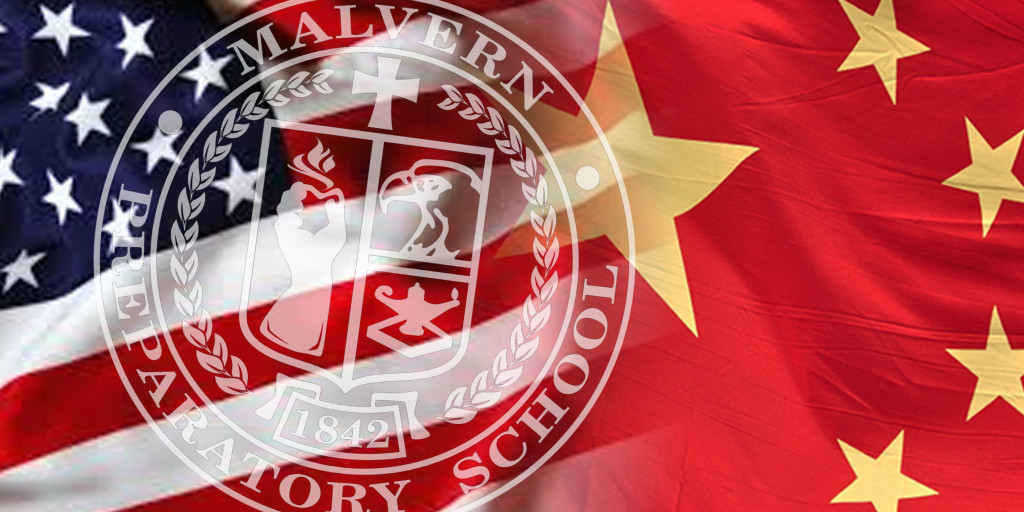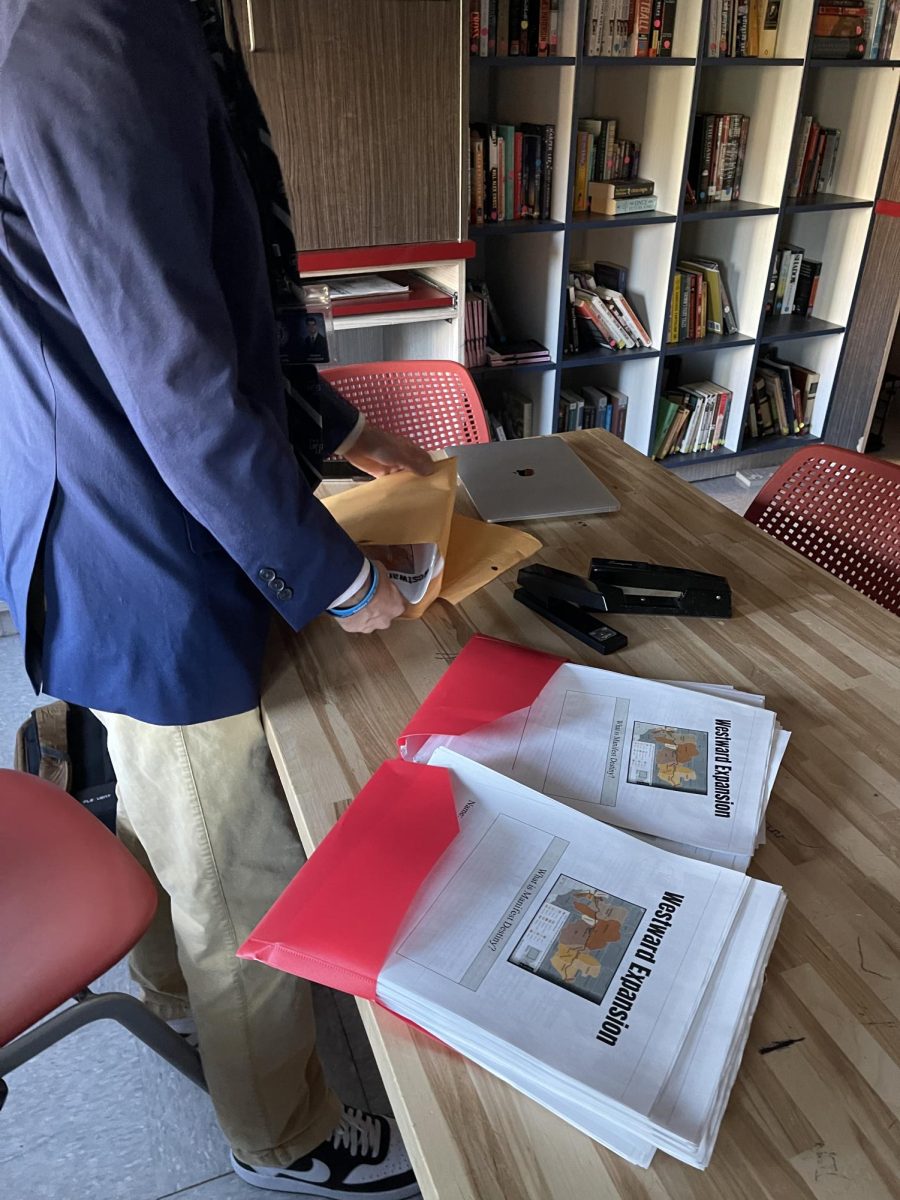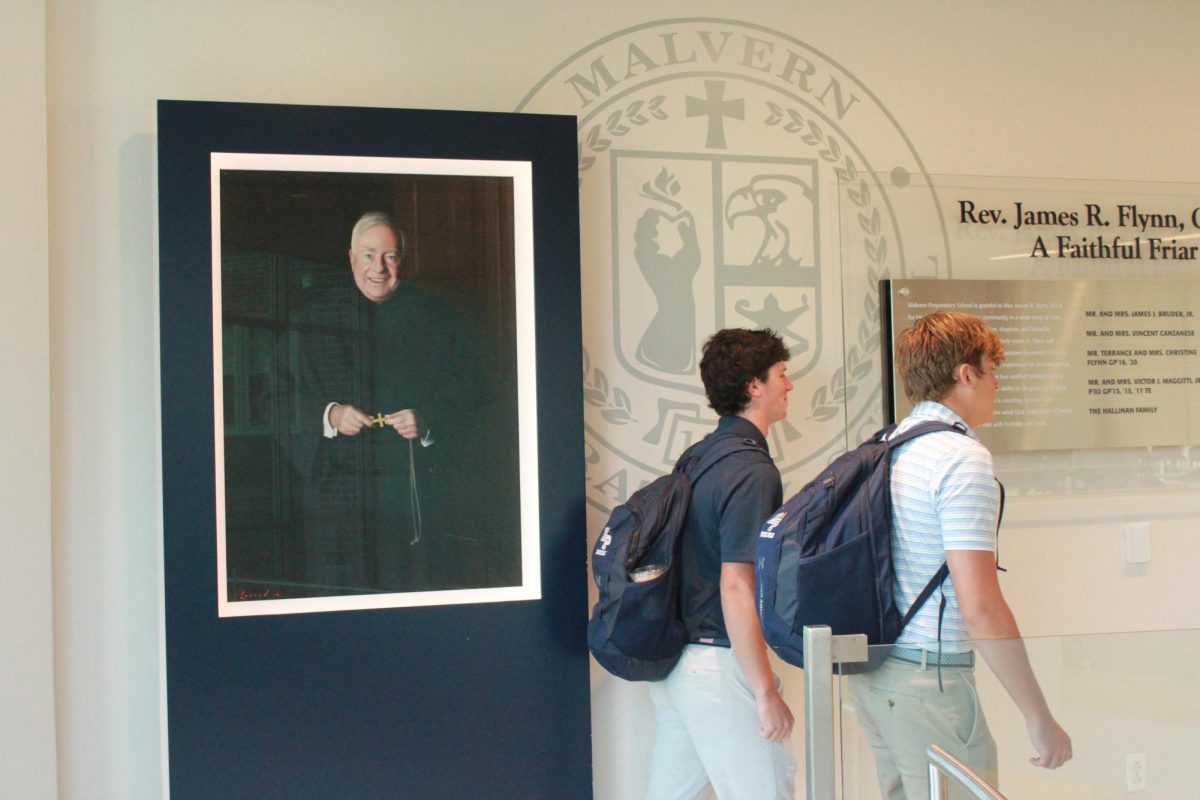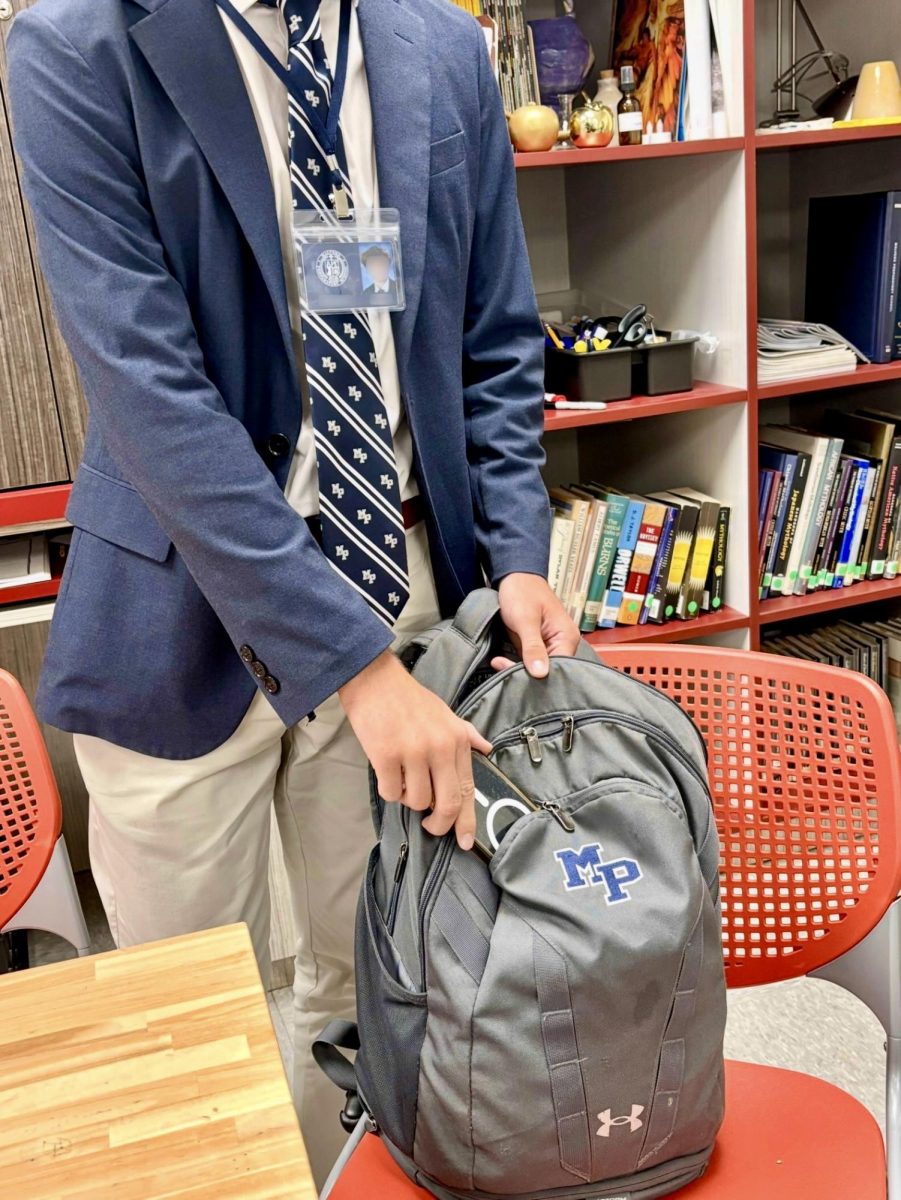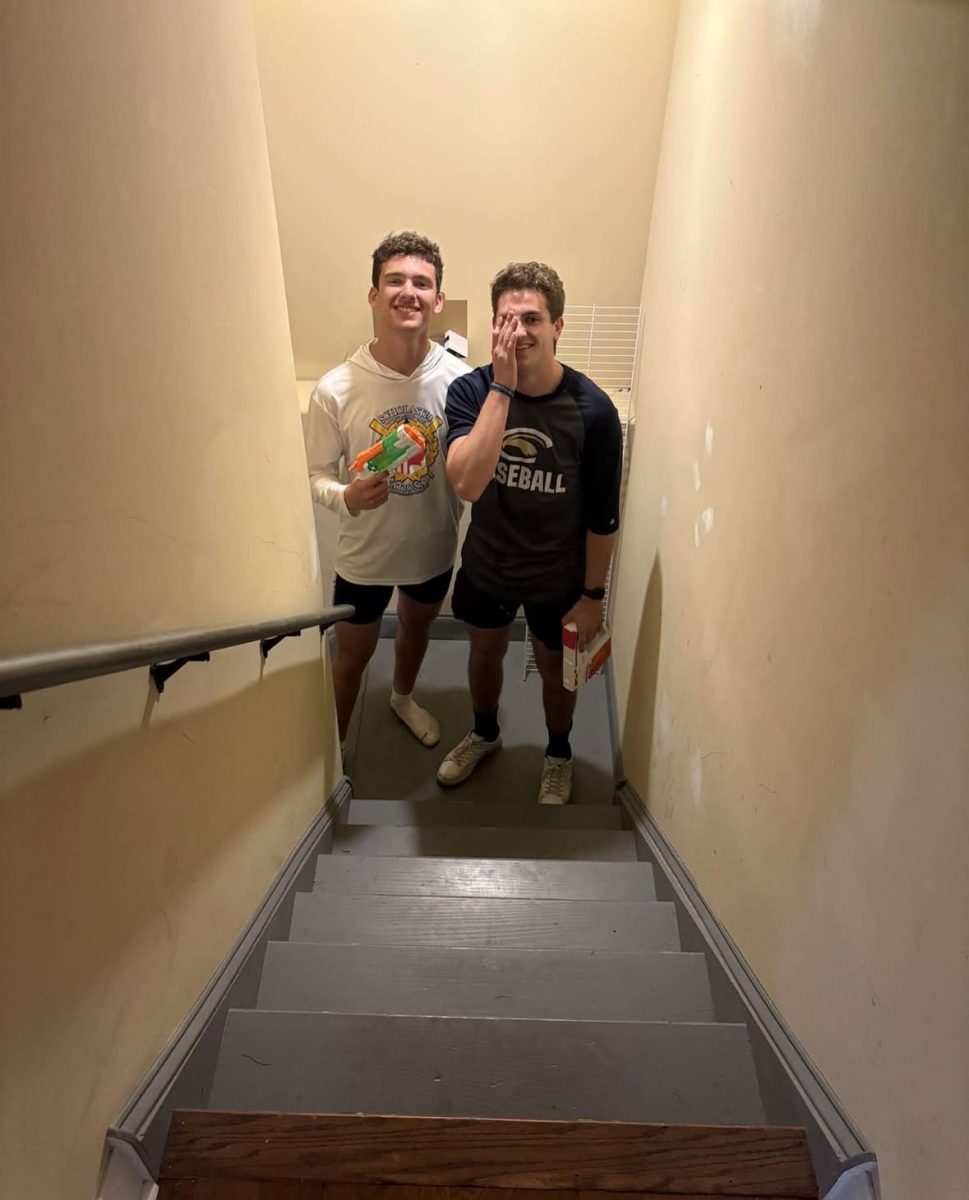
Malvern is becoming more international with service, exchange, and admissions.
[toggle title=”Malvern to increase international applicants in upcoming years” state=”close”]
The admissions department has started to form a partnership with Ivy International Group (IIG), Assistant Director of Admissions and Diversity Mr. Pat Williams ’03 said.
“This year we just signed an agreement with Ivy International which is an international placement organization that works with Shipley, Episcopal, a lot of independent schools in the area,” Williams said.
Williams said that IIG was on campus on October 7 to create a profile of Malvern that they will use to show their Chinese students.
“They go through a process of creating a profile for your school and they have counselors who are stationed in China who will promote your school to families in China who are interested in schools in the United States,” Williams said.
Williams anticipates that the partnership with IIG will increase the number of applicants from China. “This past year, without having any relationships with any organizations, I think we had 8 applications come in,” Williams said. “But I think having a relationship with Ivy will send us a good number of applicants.”
However, Williams said some schools can become too dependent on a high number of international students for budgetary reasons because you can typically ask them to pay more.
“For a lot of these families $50,000 a year for a boarding school is literally a drop in the bucket as far as what they’re making every year,” Williams said.
Williams said Malvern admissions is conscious of the growth.
“I don’t see us getting anywhere close to 8-10% of a class being international students,” Williams said.
Malvern had to create additional criteria for international applicants. One part of that is the TOEFL or Test of English as a Foreign Language exam. For a student to be considered at Malvern they must attain a minimum score of 80 on the TOEFL.
Additionally, international applicants are asked to have a Skype interview on top of the regular requirements that domestic students have, Williams said.
“We like to do a Skype interview where you can really get a good idea of their English proficiency by how well they can comprehend in their responses,” Williams said.
Williams, whose other role is Director of Diversity, is excited about what the international students can bring to Malvern.
“I think it is a valuable addition to the Malvern community to have international students,” Williams said. “Getting that experience and exposure is valuable for the exchange students and the domestic students.”
[/toggle]
[toggle title=”Global Exchange Program plans to organize new option to China” state=”close”]
Malvern’s exchange program plans to expand its locations to China at the Western Institute School of Shanghai (WISS,) moderator of the program Ms. Teresa Lohse said.
When the Executive Director of WISS Mr. Tim Guo visited Malvern, he and Lohse met about possibly establishing a student exchange relationship.
“When I met with Mr. Guo and other members of his school in the Spring, they were very open with Malvern and because Howard Yao is here. That is a nice connection already,” Lohse said.
Lohse, who has studied Mandarin Chinese, was excited about the possibility of expanding the program to China. “When I first heard about it, I immediately thought ‘wow what a wonderful possibility for Malvern’,” Lohse said.
She hopes to roll out the new exchange in the next academic school year. However she is not sure when it will be or how long.
Lohse said that the length and time of the exchange is up to the students. “I have already talked with Mr. Algeo and Mr. Talbot is aware. Everyone seems to be pretty flexible.”
According to Lohse, the Global Exchange program started with Augustinian schools in Panama, Australia, and Spain. However, last year Malvern partnered with Aquinas American School in Spain which is a non-Augustinian Catholic school.
“Partnering with [Aquinas] was ok, because we share a similar ethos,” Lohse said.
A partnership with WISS would be different. As an international school they do not have a religious affiliation, Lohse said. “It is not a Catholic school, so that is a challenge.”
“It would be slim to none to find a school exactly similar to Malvern in China,” Lohse said. “But if we find a school that has similar goals that we have, and I saw that in talking with WISS, that made me feel comfortable with them.”
This new exchange to China will be the third additional partnership in three years. “We are always looking to grow.”
Last year, Malvern partnered with the Aquinas school. This year, Argentina was added to the list of countries for a summer exchange, and Lohse’s goal is to expand to China next year.
“I am very excited about the possibility of this [partnership],” Lohse said. “It is nice to see so many people behind it.”
[/toggle]
[toggle title=”Malvern coordinates service partnership in China” state=”close”]
This year, the juniors were offered a new service trip location – China and Cambodia.
Director of Christian Service Mr. Larry Legner organized the trip in conjunction with the Western International School of Shanghai (WISS).
Executive Director at WISS Mr. Tim Guo visited Malvern in February of 2015, Legner said.
“We just hit it off,” Legner said. “Just had a great relationship.”
Legner and Guo started to talk about a potential partnership between the two schools for the senior service program.
In June, Legner said he sent an email to Guo with a list of the service locations and dates to see if any of them corresponded with the times of WISS’s service projects, Legner said. Guo wrote back saying that the time of the Costa Rica trip, during spring break, corresponded with a service trip that WISS goes on to Cambodia, Legner said.
“It would be great for the two schools to work together,” Legner said.
Legner was worried that cost might be too high for the trip to work. “I thought this was going to be so out of range, but it wasn’t going to cost within a little bit more than South Africa.”
The final cost for the trip ended up being $2,000 for students – the same as Philippines, Armenia, South Africa, and Fiji.
Legner hoped students going on the trip would connect with students at the WISS school by the winter.
“I’m hoping we are able to… start a connection even before we go and hopefully afterwards too,” Legner said in an interview prior to the trip’s cancellation.
Students on the trip would have spent two days in the Chinese capital of Beijing and then traveled to Cambodia, Legner said. “We’ll go and we’re going to build a school in a village in Cambodia.”
With all the details and logistics worked out, Legner offered it to students as an option for their service location. However, when it came time for the juniors to select their location only 3 people had signed up for the trip.
“I have to have a minimum of two chaperones on every trip,” Legner said. “Financially without getting group rates with flights and paying for two chaperones for three kids it wasn’t workable.”
East Asian teacher Mr. Tom McGuire would have liked to have seen the trip happen.
“The experience itself would be unforgettable,” Mr. McGuire said. “I mean I would love to go there simply to see the country.”
Legner said he plans to offer the trip again next year.
“A trip could be very unpopular one year and popular the next, so I am keeping it open for next year,” Legner said.
[/toggle]
[toggle title=”Chinese exchange students talk about differences of China and US” state=”close”]
Yuezhang “Howard” Yao Jr. and Zhengguo Hao are not used to freedom of speech or freedom of the press.
Yao and Hao are from China.
“In China you can’t say your leaders are stupid,” Yao said. “Of course not.”
In China, if someone does not agree with their leaders, Yao said the only thing you can do is accept it.
“You can vote, but it doesn’t count,” Yao said.
Protesting is not allowed, Yao said. “You can’t protest. You will be arrested,” he said.
“You must apply if you want to protest,” he said, laughing that they are often not approved.
However, Yao said the Chinese people like their current leader Xi Jinping.
Yao said that the people of China get their news in similar ways as people do in the United States – TV, Internet, newspaper. “I believe it’s controlled by the government,” he said.
Most people in China don’t have a religion. “Communists always promote there is no God,” he said.
The transition to a Catholic school is different for Yao. “I respect that, but I still need time to change my opinion,” he said with a smile.
Schooling is also different in China logistically, culturally, and content-wise.
“Two students share a desk,” Yao said. “You will have a stable classroom…and you stay in your classroom the whole day.”
Yao finds the material at Malvern much more interesting than in China. “Most of the things I learned in China were useless,” he said.
School in China is much more competitive, Hao said.
“The competition is really really high,” Hao said. “You want to work hard in elementary school to get into a good middle to school to get into a good high school to get into a good college.”
Hao said he would take hours of classes after the normal school day ended. “When I was in fifth grade, I had 11 extra classes outside of school per week,” Hao said.
Hao’s parents started a business that imports food to sell in China.
Yao’s mother works in a bank and his father is in the Chinese Army stationed in Shanghai.
“[My father] is not allowed to go abroad, and he is very busy,” Yao said.
“If you lived in China you would think it is a very good country,” Yao said. “You just do your own life and life is quite the same and also very interesting and lovely.”
[/toggle]


